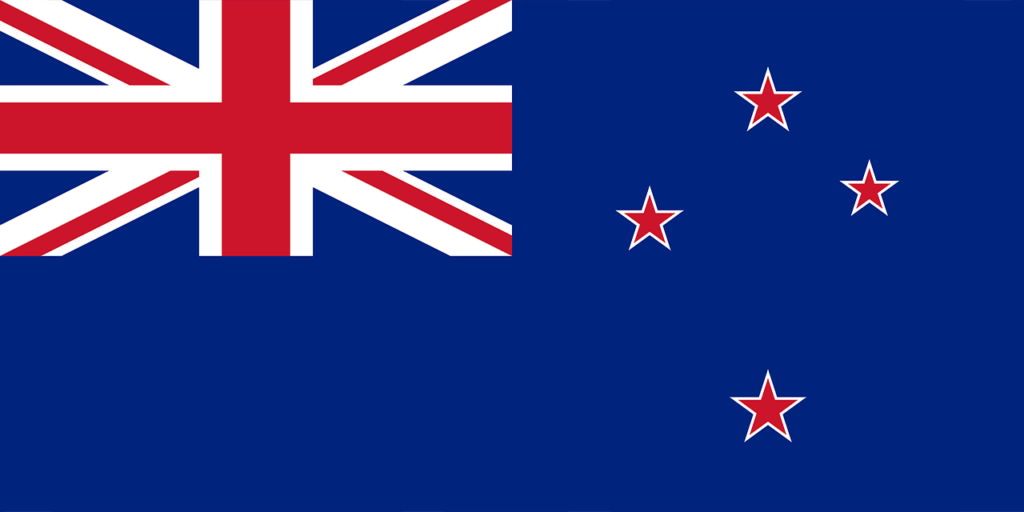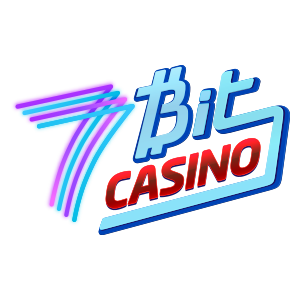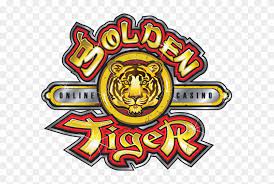
New Zealand Gambling Regulations
Table of contents
Gambling Regulations for Online Casinos in New Zealand
New Zealand may be the land of “no worries,” but what about when it comes to online gambling? This small island nation has not embraced the casino lifestyle as openly as other places around the world, but it's not exactly prohibitive, either.
Currently, Kiwis are allowed to bet at offshore gaming sites, but the law is pretty strict for casino operators. Here is everything you need to know about gambling regulations in New Zealand.
A Brief History of Online Gambling in New Zealand
Like its nearest neighbor, New Zealand used to be a British colony. From 1841 to 1907, the island was a “Crown Colony” and had to abide by British laws and regulations. After 1907, New Zealand gained its independence (six years after Australia) and formed its own government.
Gambling started in the country when British colonists brought horses and their love of horse racing. The first betting race was actually in 1835 at the military garrison in Auckland. For much of the 1800s, horse racing was the premier form of gambling in New Zealand, with many military officers facilitating the races. Over time, tracks were built, and non-military games were held.
Because of this history, horse racing and sports betting are baked into New Zealand's DNA far more than casino gambling or slot machines. As we'll get into later, the country has more favorable laws regarding online horse racing and sports betting.
When it came to other forms of gambling, New Zealand was relatively late to the party. While horse racing and bingo were popular for much of the 20th century, it wasn't until the 1980s that the country started expanding its options. First, a state lottery was introduced in 1987, and Keno lottery games quickly spread throughout the region. By 1991, the first slot machines came and exploded as a way for regular folks to gamble for fun instead of going to the track.
Gaming machines were trendy in bars and clubs, and many establishments installed them to capture the new craze. In the first year alone, slots accounted for roughly 20 percent of all gambling in the country. By 2003, that figure had swelled to just over half of all betting money.
Land-based casinos didn't open on the island until the mid-90s when Christchurch Casino opened in 1994. After more than 20 years, the country only has six total, illustrating how small the gambling market is here compared to elsewhere in the region. By comparison. Australia has double the number. However, with less than five million people spread across the islands, that could be a substantial factor.
As far as online gambling, digital casinos started springing up in the mid to late 90s. During this time, the industry was unregulated as countries were trying to get a handle on how to control it. New Zealand passed the Gambling Act of 2003 to regulate the industry, both online and in-person.
Basically, the Gambling Act prohibited operators from offering “interactive online games,” except those already allowed, such as lotteries and horse racing. While it's not illegal to bet online, there are no New Zealand-based online casinos because of this act.
Here are some important dates in the history of gambling in New Zealand:
- 1835 – The first horse race on the islands.
- 1883 – The New Zealand Racing Board is founded, which oversees all horse racing in the country.
- 1907 – New Zealand gains its independence as a new country.
- 1971 – The first Racing Act is passed, which essentially legalizes horse betting, as long as operators are part of the Totalisator Agency Board (TAB). The TAB has a monopoly on all horse racing within the country.
- 1977 – The Gaming and Lotteries Act is passed, allowing nonprofit organizations to host lotteries and bingo (aka housie) to raise funds for various community activities.
- 1990 – The Casino Control Act is passed, which lays the groundwork for legalized casinos. This act aimed to promote jobs and tourism while allowing the government to monitor and regulate all land-based gambling.
- 2003 – The Gambling Act is passed, simplifying the original Racing Act and prohibiting other forms of remote interactive gambling.
Is Online Gambling Legal in New Zealand?
Overall, yes, it is legal to place bets online in New Zealand. Much like Australia's Gambling Act of 2001, the country sought to prohibit online casinos from being established within New Zealand's borders. That said, sports betting and horse racing are fully legal online, as long as players go to offshore websites.
Since live betting is considered “interactive,” players cannot make live bets during a horse race or sporting event. Online lotteries are also fully legal, as the New Zealand Lotteries Commission handles those.
Because of these rules, New Zealand is both a white and gray market for online gambling. While online casinos are prohibited within the country, Kiwis will not be prosecuted for betting at offshore sites. Otherwise, sports betting, horse racing, and lotteries are well regulated by the government, meaning that residents have multiple options for placing bets, either online or in-person.
Gambling Regulations for Online Casinos New Zealand
The Gambling Act of 2003 is the primary law related to online casinos in New Zealand. Here is a more thorough breakdown of the law and how it works.
One of the primary elements of this law is the formation of four “classes” of gambling. As long as games meet these requirements, they won't violate the Act. That said, all remote interactive gaming is prohibited, regardless of if it would technically fit into one of these classes. The four categories are as follows:
Class 1
In this case, individuals or organizations can run the games as long as the total prize pool doesn't exceed $500. The organizers cannot take a cut of the winnings or receive payment of any kind, and there must be relevant rules spelled out beforehand.
Class 1 games run by a society or organization can use proceeds for specific purposes, such as charitable contributions. The list of authorized purposes is pretty open-ended, as long as the money goes toward the public good. Prohibited prizes include items like alcohol, drugs, firearms, Maori artifacts, and sexual favors.
Running these games does not require a license from the Department of Internal Affairs.
Class 2
The rules for these games are mostly similar to class 1, with a few exceptions, such as:
- Only organizations can run Class 2 games.
- The total prize pool cannot exceed $5,000.
- All details about the game must be shown in writing before beginning (i.e., prizes offered, organizers, etc.)
Class 2 games also don't need a license.
Class 3
Once you get into Class 3 territory, the Department of Internal Affairs (DIA) must get involved. Organizers have to be a corporate society and verify that they are raising funds for an authorized purpose. Class 3 games can exceed $5,000 in total prize winnings for a single session, but prohibited prizes are still enforced.
Gambling machines also cannot be involved, either directly or indirectly. For example, players can't use a slot machine to win tickets for the next game.
Examples of Class 3 gambling include large-scale bingo nights, casino fundraisers, and lottery games.
Class 4
All the same rules from Class 3 apply, but these games can involve a gambling machine outside a casino. Again, the money has to go toward an authorized purpose, and the DIA will scrutinize both the company running it and how the funds will be used afterward.
What's important to know about these licenses is that they have to be obtained for each session. The only exception is for regularly-scheduled bingo (housie) games. Even then, the permit has to be renewed annually. All licenses go through the Gambling Group, which is a division of the DIA.
Private Gambling
The Gambling Act also outlines rules for private betting sessions. Any activities that fall outside these parameters would be illegal.
- The game has to be part of a social event or party. This means that people can't come together specifically to gamble, but games can be part of a larger event.
- There can be no formal advertising of gambling. For example, you can't talk about playing poker or blackjack on invitations.
- All players have an equal chance of winning, and the total winnings are distributed only among the players. Organizers cannot take a cut of the winnings or receive payment of any kind.
- If there is a “bank” in the game (i.e., with blackjack), the role of the banker has to pass between players. One person can't act as the bank for the duration of the event.
- Only participants can win money from the games.
Remote Interactive Gambling
Except for authorized games run by either the Lotteries Commission or the New Zealand Racing Board, all forms of remote interactive gambling are forbidden. However, this ruling only applies to operators and commercial enterprises. Individual players can place bets on foreign “offshore” websites. However, they should be aware that any counts of fraud or any customer complaints won't be handled by New Zealand law enforcement. Instead, players will have to seek restitution from any foreign licensing body directly.
The Gambling Act also prohibits offshore online casinos from advertising within the country. There was actually a case related to this in 2010. A company called the Rational Group, which owned a casino site called PokerStars.net, was advertising in New Zealand. Because these ads highlighted Poker Stars, the Department of Internal Affairs alleged that Rational was violating the law.
However, upon investigation, the government concluded that PokerStars.net was a “play money” site, meaning that players don't use real cash on the games. Because of this distinction, Rational was able to continue advertising in the country. Part of the confusion is that PokerStars.com is a real money site, and the .net URL is not immediately noticeable. Nonetheless, Rational Group won the lawsuit.
Regulatory Authorities for Online Gambling in New Zealand
Three agencies oversee all forms of online gambling. They are the New Zealand Racing Board, the New Zealand Lotteries Commission, and the Department of Internal Affairs. Here is a rundown of each group and how they operate.
New Zealand Racing Board
As of 2020, the NZRB is now known officially as the Totalisator Agency Board New Zealand (TAB NZ). This organization oversees all horse racing and sports betting within the country, both in-person and online. The TAB runs games in both New Zealand and Australia and was founded in 1950.
Because sports betting is considered “interactive” by the Gambling Act, players cannot place wagers on horse races or sporting events online. Instead, the TAB manages all live betting in person at the tracks or authorized sites and kiosks.
New Zealand Lotteries Commission
This commission was created in 1987 and is in charge of all lottery games in the country. Currently, online lotteries are permitted as an exception to the Gambling Act, as long as they follow the rules regarding the various gambling classes as established in the Gambling Act of 2003. Some additional rules for lotteries include:
- Organizers cannot participate.
- Tickets must be numbered.
- All tickets sold must have an equal chance of winning.
- Lotteries cannot have jackpot winnings.
- Class 3 and 4 games have to be approved by the Department of Internal Affairs before commencing.
Instant lotteries are popular in New Zealand, and they mostly fall into Class 1 or 2 since the prize pools are pretty small. Conducting instant games this way also allows the Lotteries Commission to avoid following stricter rules and regulations.
Department of Internal Affairs
The DIA was founded in 1640 and manages much of the internal workings of New Zealand's government. Gambling laws and oversight are just one of many issues that the Department handles. The DIA is in charge of issuing licenses to land-based casinos and organizers of gambling events that fall into Class 3 or 4 territories. Otherwise, the Department is also in charge of ensuring that all gambling within the country is legal and penalizing any offenders.
Even the TAB NZ and Lotteries Commission fall under DIA jurisdiction if they violate any of the rules set forth by the Gambling Act of 2003.
Gambling Addiction Resources in New Zealand
Since online gambling is legal in New Zealand, the country offers multiple resources for problem gamblers, including:
- Gambling Helpline – Players can get immediate assistance by calling the toll-free number or initiating a live chat through the website. The Gambling Helpline also has tons of information on how to identify problem gambling and address its effects.
- Health Navigator – This website offers health-related information and resources to all Kiwis. It has a special section devoted to problem gambling, where individuals can take a test to see if they have an addiction.
- Gamblers Anonymous – You can check out in-person group meetings through this international organization. Find meeting sites online here.







